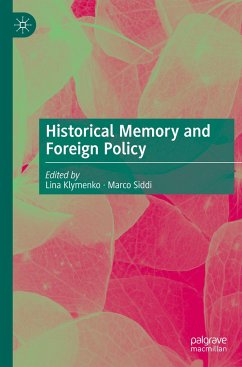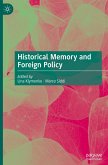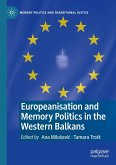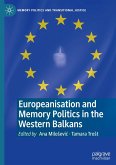This book explores the uses of the past in foreign policy-making. It outlines why and how political leaders refer to historical events in contemporary foreign policy discourses; the goals they hope to achieve; and the sometimes unintended foreign policy consequences of their (ab)use of historical memory. Furthermore, it looks at how political leaders shape domestic collective memories in pursuit of their international agendas, and highlight historical events leaders forget, reinterpret or obscure through selective narratives.
The chapters explore a variety of theoretical concepts that shed light on how memory and foreign policy are linked in a complex and reciprocal way. The following mechanisms are discussed: the application of historical analogies; the construction of historical narratives; the creation of memory sites; the marginalisation and forgetting of the past; and the securitisation of historical memory. Through the use of a number of methodological approaches (such asdiscourse analysis, narrative analysis and content analysis of securitising moves) and a broad range of qualitative and quantitative data (newspaper articles, policy documents, commemorative speeches, interviews with policymakers and the observation of memory sites), the contributions highlight the interdependence of the international, national, regional and local dimensions of memory practices and history writing. Although they mostly focus on national case studies of foreign policy-making, they also reveal how representations of historical events evolve through interaction between political actors at the international level of analysis.
The collection originated in the section entitled 'Exploring the Link between Historical Memory and Foreign Policy' at the annual Pan-European Conference of the European International Studies Association (EISA) 2018 held in Prague, the Czech Republic.
The chapters explore a variety of theoretical concepts that shed light on how memory and foreign policy are linked in a complex and reciprocal way. The following mechanisms are discussed: the application of historical analogies; the construction of historical narratives; the creation of memory sites; the marginalisation and forgetting of the past; and the securitisation of historical memory. Through the use of a number of methodological approaches (such asdiscourse analysis, narrative analysis and content analysis of securitising moves) and a broad range of qualitative and quantitative data (newspaper articles, policy documents, commemorative speeches, interviews with policymakers and the observation of memory sites), the contributions highlight the interdependence of the international, national, regional and local dimensions of memory practices and history writing. Although they mostly focus on national case studies of foreign policy-making, they also reveal how representations of historical events evolve through interaction between political actors at the international level of analysis.
The collection originated in the section entitled 'Exploring the Link between Historical Memory and Foreign Policy' at the annual Pan-European Conference of the European International Studies Association (EISA) 2018 held in Prague, the Czech Republic.








